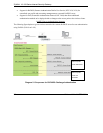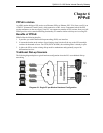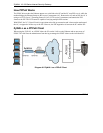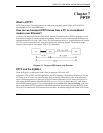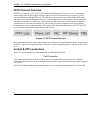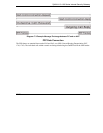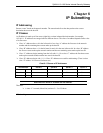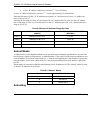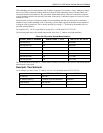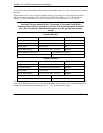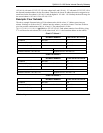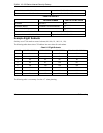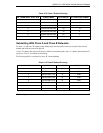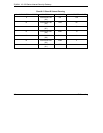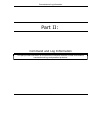
ZyWALL 10~100 Series Internet Security Gateway
8-2 IP Subnetting
A class “B” address (16 host bits) can have 2
16
–2 or 65534 hosts.
A class “A” address (24 host bits) can have 2
24
–2 hosts (approximately 16 million hosts).
Since the first octet of a class “A” IP address must contain a “0”, the first octet of a class “A” address can
have a value of 0 to 127.
Similarly the first octet of a class “B” must begin with “10”, therefore the first octet of a class “B” address
has a valid range of 128 to 191. The first octet of a class “C” address begins with “110”, and therefore has a
range of 192 to 223.
Chart 8-2 Allowed IP Address Range By Class
CLASS ALLOWED RANGE OF FIRST OCTET
(BINARY)
ALLOWED RANGE OF FIRST OCTET
(DECIMAL)
Class A
00000000 to 01111111
0 to 127
Class B
10000000 to 10111111
128 to 191
Class C
11000000 to 11011111
192 to 223
Class D
11100000 to 11101111
224 to 239
Subnet Masks
A subnet mask is used to determine which bits are part of the network number, and which bits are part of the
host ID (using a logical AND operation). A subnet mask has 32 bits; each bit of the mask corresponds to a bit
of the IP address. If a bit in the subnet mask is a “1” then the corresponding bit in the IP address is part of the
network number. If a bit in the subnet mask is “0” then the corresponding bit in the IP address is part of the
host ID.
Subnet masks are expressed in dotted decimal notation just as IP addresses are. The “natural” masks for class
A, B and C IP addresses are as follows.
Chart 8-3 “Natural” Masks
CLASS NATURAL MASK
A 255.0.0.0
B 255.255.0.0
C 255.255.255.0
Subnetting



